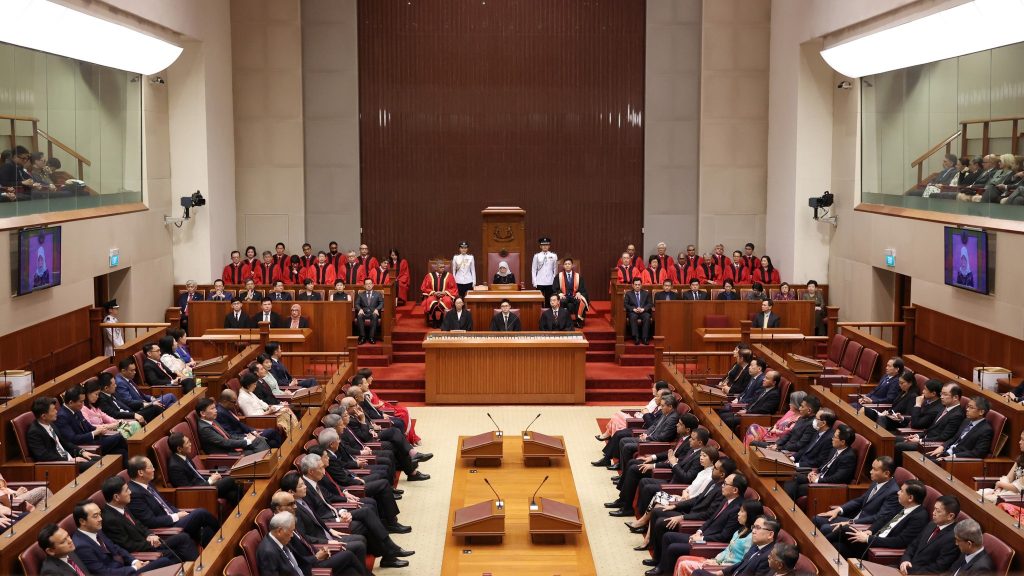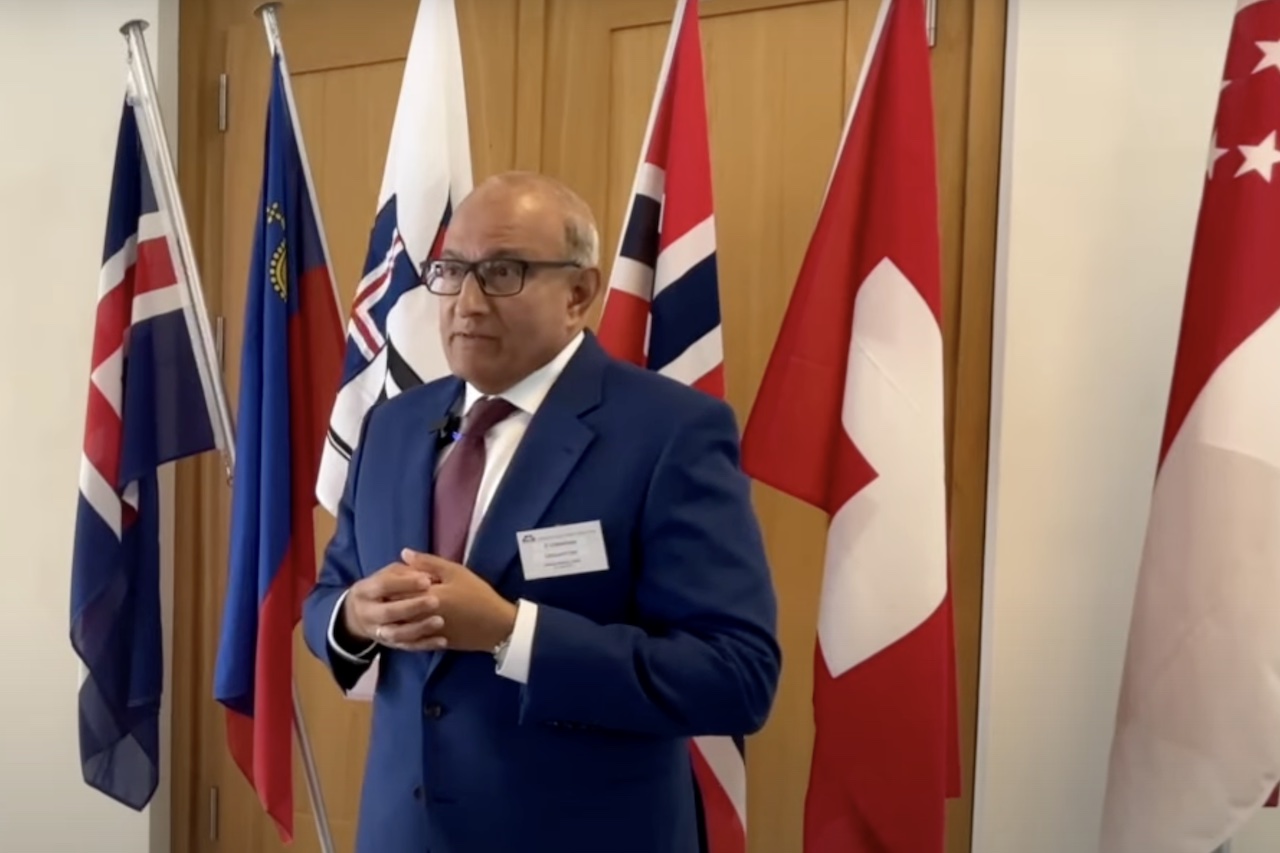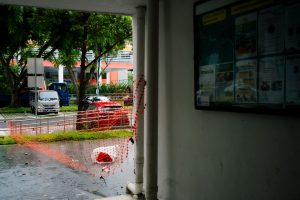Top Image: EFTA Video / YouTube Screengrab
It turns out that parliamentarians across the aisle can agree on something.
In a Parliamentary sitting on September 19th, the Workers’ Party (WP) and People’s Action Party (PAP) joined hands to reject the Progress Singapore Party’s (PSP) proposal to suspend Transport Minister S. Iswaran as a Member of Parliament (MP).
ADVERTISEMENT
The motion Non-constituency Member of Parliament (NCMP) Hazel Poa filed would suspend Mr Iswaran from the remainder of Parliament’s current session. If passed, Mr Iswaran would no longer receive an MP’s allowance.
Mr Iswaran is currently on a leave of absence from his ministerial and MP duties as he is being investigated by the Corrupt Practices Investigation Bureau (CPIB). But he’s still receiving a reduced monthly pay of $8,500 and an MP’s monthly allowance of about $16,000 (based on figures published on the Public Service Division website).
It’s no small sum, so it’s easy to see how it’s become a sticking point.
Why should someone who’s not doing any work be paid so much? At the same time, is withholding someone’s income just because they’re under investigation justifiable?
Mr Iswaran’s absence from work since July wasn’t exactly by choice. He’s been officially interdicted from his ministerial responsibilities by Prime Minister Lee Hsien Loong. As a matter of party discipline, he’s also been asked by PM Lee to step back from his MP duties. Carrying on with his MP role and attending Parliament while under investigation would be “difficult”, Minister in the Prime Minister’s Office Indranee Rajah offered.
It’s important to note that this is not an official suspension from his MP role, as PM Lee does not have the power to do that. Parliament has to move on a motion to interdict the MP as an MP. It’s only when this happens that the MP’s allowance is withheld. Hence, the motion filed by Ms Poa.
Ms Indranee filed a counter-motion to “consider the matter” after the investigation concluded and the findings made public. Ms Indranee argued that information was simply insufficient for the ruling party to make an informed decision.
MPs from across the aisle supported the counter-motion; all eight MPs from the Workers’ Party (WP) voted for the counter-motion. Parliament’s two biggest political parties agreed: Suspending Mr Iswaran as an MP now would be too hasty.
“In the Workers’ Party view, the wheels of justice must be allowed to fully turn before Parliament decides what to do,” Leader of the Opposition Pritam Singh declares, justifying his decision based on the presumption of innocence.
However, Mr Singh asked the Leader of the House whether the ruling party would consider “clawing back” Mr Iswaran’s MP allowance and impose consequences after investigations or the full court process have been completed.
Too Quick To Judge
It’s natural for Singaporeans to take issue with the money Mr Iswaran continues to receive while under investigation. Even with reduced pay, Mr Iswaran still pockets over four times the median income of a full-time employee in Singapore. All while he carries out none of his duties.
For the rest of us doing our best to eke out a living, it stings. Looking past this frustration, though, is officially suspending him justified?
Some might believe a corruption probe is a good enough reason to vote for PSP’s motion. After all, Ms Poa also filed a second motion so that Mr Iswaran would be reimbursed for his allowance if he is cleared of wrongdoing.
Ms Poa reasoned that since Mr Iswaran was out on a leave of absence, he was effectively suspended from his MP duties while receiving an MP allowance.
While they might not be intentional, Ms Poa’s motions seemed to carry a subtle assumption that Mr Iswaran is assumed guilty until proven innocent. And, if Ms Poa’s motions were to be endorsed in parliament, it would set a precedent and spell trouble for Singaporeans.
Section 20 of the Parliament (Privileges, Immunities and Powers) Act does make provisions for an MP to be suspended should they display “any dishonourable conduct, abuse of privilege or contempt”. In other words, there has to be some actual wrongdoing for an MP to be suspended. Simply being under investigation isn’t enough.
ADVERTISEMENT
Currently, Mr Singh and WP MP Faisal Manap are also under investigation. Their conduct during the Committee of Privileges hearing into former MP Raeesah Khan’s lies in Parliament is also being examined.
If Ms Poa’s motions were supported, there would be grounds to suspend both WP MPs and withhold their MP’s allowance even before any wrongdoing is concluded. Ms Indranee Singh pointed that out as well.
The singular target placed on Mr Iswaran’s back seemed politically motivated more than anything. It would also spell a harder time for all Opposition MPs in Parliament if two more of their own were missing—especially after WP lost Mr Leon Perera when he resigned as MP.
It would be unfair to both WP and PSP if more Opposition MPs were suspended. From a political standpoint, Ms Poa’s motions seemed opportunist in the short term but harmful to the Opposition’s own prospects in Parliament in the long run.

Accountability Comes With Responsibility
Holding people in positions of power accountable for their actions is important for a healthy democracy. But holding someone accountable comes with its own set of responsibilities.
The investigation into Mr Iswaran doesn’t justify why anyone should pre-judge the results as if they were a foregone conclusion. No matter how surprising the news of the investigation, no amount of surprise warrants going against a fundamental legal principle and an international human right.
If we cannot adhere to the presumption of innocence, holding someone else accountable for their actions would also be difficult. The investigation results have not been released, and Mr Iswaran is presumed innocent. Until proven otherwise.
Singaporeans are understandably upset that Mr Iswaran continues to receive a sizable allowance even under investigation. However, one has to ask whether those frustrations stem from a bone to pick with the ruling party. Those frustrations can be expressed at the ballot box instead.
Legally, justice must run its due course. While Singaporeans might not be happy with the money heading into Mr Iswaran’s pockets each month, we can appreciate that the rule of law and its fundamental principles stand above politicking. It’s important to look beyond party lines and focus on the principle of the matter.
And as long as suitable politicians are voted into Parliament, we can be confident that the law and its legal principles will remain above the whims and fancy of political games.







